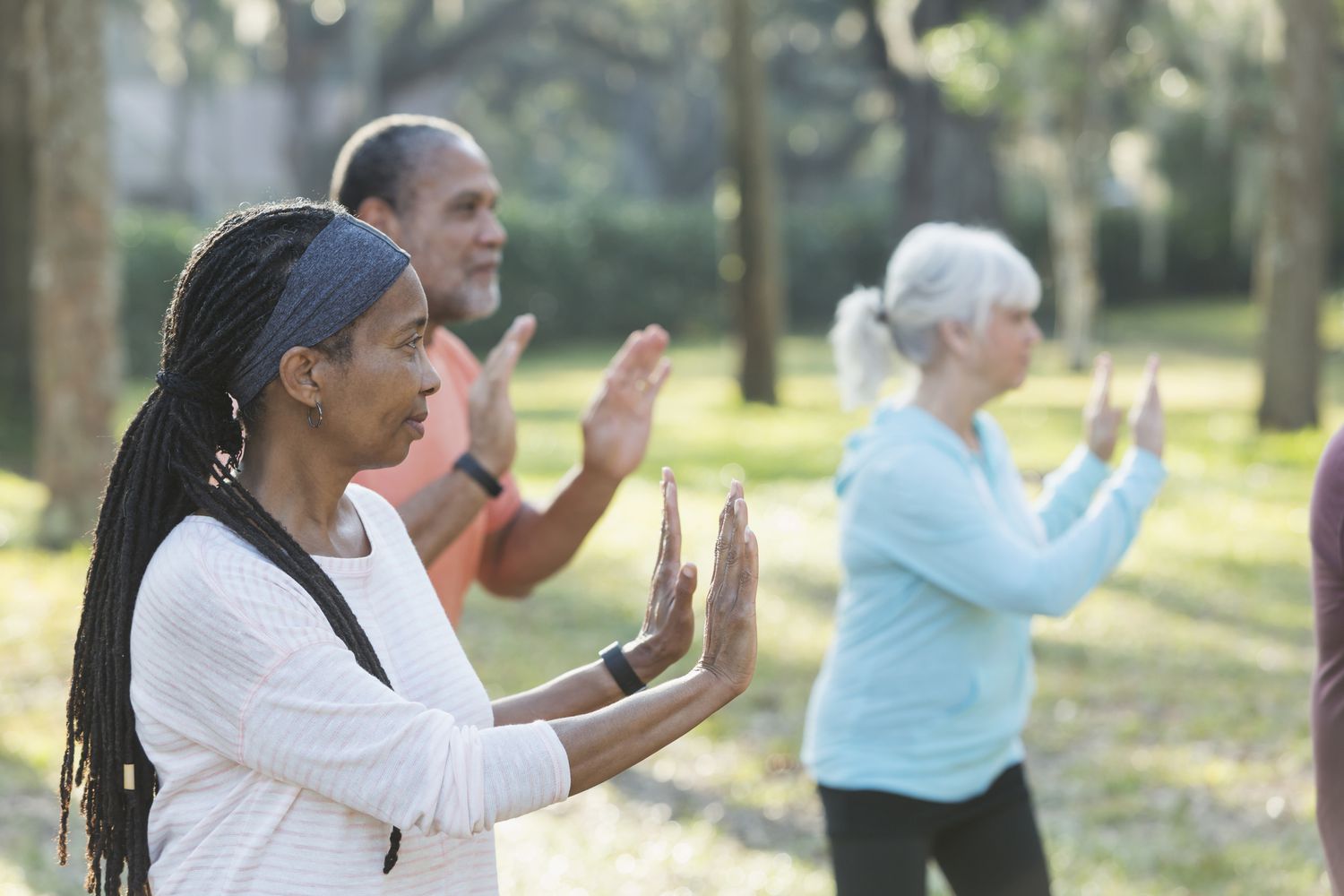New Studies Show Tai Chi's Potential in Enhancing Memory and Slowing Progression of Parkinson's Disease

The traditional exercise of tai chi has long been recognized for its benefits such as enhanced balance, stability, and mood. Recently, two new pieces of research have unveiled major brain health benefits for the elderly through this practice.
The initial research, disclosed in the Annals of Internal Medicine, suggests that practicing tai chi can enhance cognition and address memory issues in people with mild cognitive impairment. The second research, disclosed in the Journal of Neurology, Neurosurgery, and Psychiatry indicates that regular tai chi practice could slow the development of Parkinson's disease.
Experts are not surprised that tai chi, with its slow and controlled movements that exercise both body and mind, can enhance both physical and cognitive health.
Kerri Winters-Stone, PhD, co-author of the study and professor at the Knight Cancer Institute at Oregon Health and Science University, posits that the movement through a choreographed sequence requires a connection between what an instructor is displaying and the actions you want your body to undertake. This generates a cognitive challenge that contributes to cognitive and brain health.
The article continues by detailing experts' perspectives on tai chi's benefits and restrictions, its impact on the body, and suggestions on who should consider incorporating tai chi into their wellness regime.
With origins in China as a form of martial art, tai chi has been practiced for centuries, predominantly as a health promotion and rehabilitation technique. Recent research supports these traditional beliefs and highlights other benefits of the practice.
In previous studies, tai chi has demonstrated the ability to aid chronic pain management in individuals with osteoarthritis, augment range of motion in people with rheumatoid arthritis, and enhance life quality and mood in cancer and heart failure patients.
In the cognitive impairment and memory loss study, researchers divided 304 senior adults into three groups each assigned tai ji quan (tai chi), stretching, or "cognitively enhanced" tai ji quan. This last exercise fuses memory and multitasking exercises with traditional tai chi movements.
To measure cognition, the researchers used the Montreal Cognitive Assessment (MoCA) and dual-task walking. The latter method tests how well individuals can perform a physical and mental task simultaneously, said Winters-Stone.
After 24 weeks, the cognitively-enhanced tai chi group saw a rise of 1.5 points in their MoCA scores compared to the traditional tai chi group, and 2.8 points compared to the stretching group. In terms of dual-task walking, the cognitively-enhanced group outperformed the traditional tai chi group by about 10% and the stretching group by 22%.
The study on the impact of tai chi on Parkinson's disease discovered that regular practice of the exercise over 3.5 years was related to slowing the progression of the disease and delaying the need for anti-Parkinsonian drugs. These participants also showed improvements in non-motor symptoms such as mood, sleep, and life quality.
Like many other forms of exercise, tai chi can boost blood flow, reduce some stress hormones and inflammatory biomarkers, all of which can aid brain functioning. According to Winters-Stone, these benefits can apply to any form of physical activity.
However, tai chi does offer its own unique set of advantages. Winters-Stone emphasized that the movements in tai chi enhance physical stability and balance, as well as walking efficiency. Moreover, tai chi challenges the mind and the body, as the choreographed sequence requires individuals to memorize and reproduce the movements.
Indu Subramanian, MD, clinical professor of neurology and integrative medicine at the David Geffen School of Medicine at UCLA states that tai chi addresses almost all wellness categories that doctors typically recommend for a healthy lifestyle, including physical activity, mindfulness, improved sleep, outdoor time, and social connection. Being easy to access and needing no particular equipments, tai chi further broadens its range of health benefits.
There are five different styles—Chen, Yang, Wu, Sun, and Hao—all of which have slightly different movements and cater to different groups or abilities.
To get started Subramanian recommends “just dropping in and trying it.'
For people with more advanced Parkinson’s or other cognitive issues, there may be an added risk of falls or other issues, Subramanian added. These people may want to consult with a doctor or physical therapist before starting a tai chi class, she said, but in general, the practice should be safe as long as people start slow.
There are usually local community classes held at schools, recreational centers, or senior centers, Subramanian said. People can also ask around at Parkinson’s or memory support groups to see if these groups have any information on local tai chi classes, she added.
However, the practice can also be done virtually—people can find tai chi videos online or can join tai chi Zoom classes for example, Winters-Stone said.
“Supervised exercise tends to result in better outcomes than unsupervised exercise,” Winters-Stone said. From personalized coaching from a trainer to accountability from the peers in the group, that may make it easier to stick with tai chi.
As for when people should try tai chi, one might assume that starting it in middle age could protect against Parkinson’s symptoms or mild cognitive decline later in life. However, it may be too early to draw that conclusion, Subramanian explained.
“To say that this is protecting the brain from the progression of [Parkinson’s] would probably be a bit of an overstatement. That is the Holy Grail in most disease states,” she said. “It modifies the disease in a positive way, so I think we can encourage people from diagnosis to pick some of these approaches.”
That being said, Subramanian said starting tai chi before someone reaches old age is likely going to be helpful, and might even “lay the foundation for you to do well as you age.”
“We have to think about the long-term benefits of exercise,” Winters-Stone said. “People get discouraged because they don’t see weight loss or other changes early on. But those things are happening, and they’re also preventing much more difficult things later on.”




